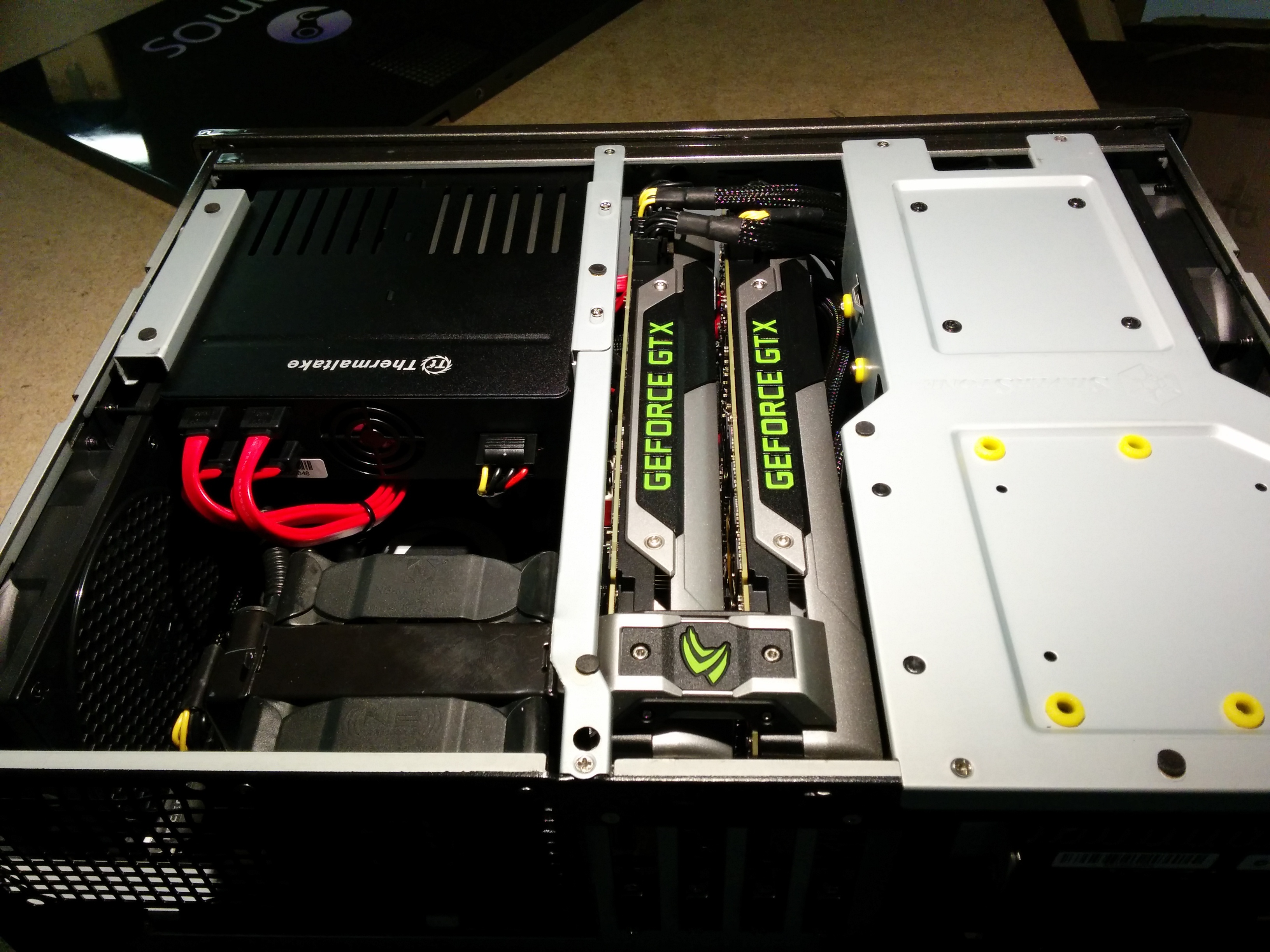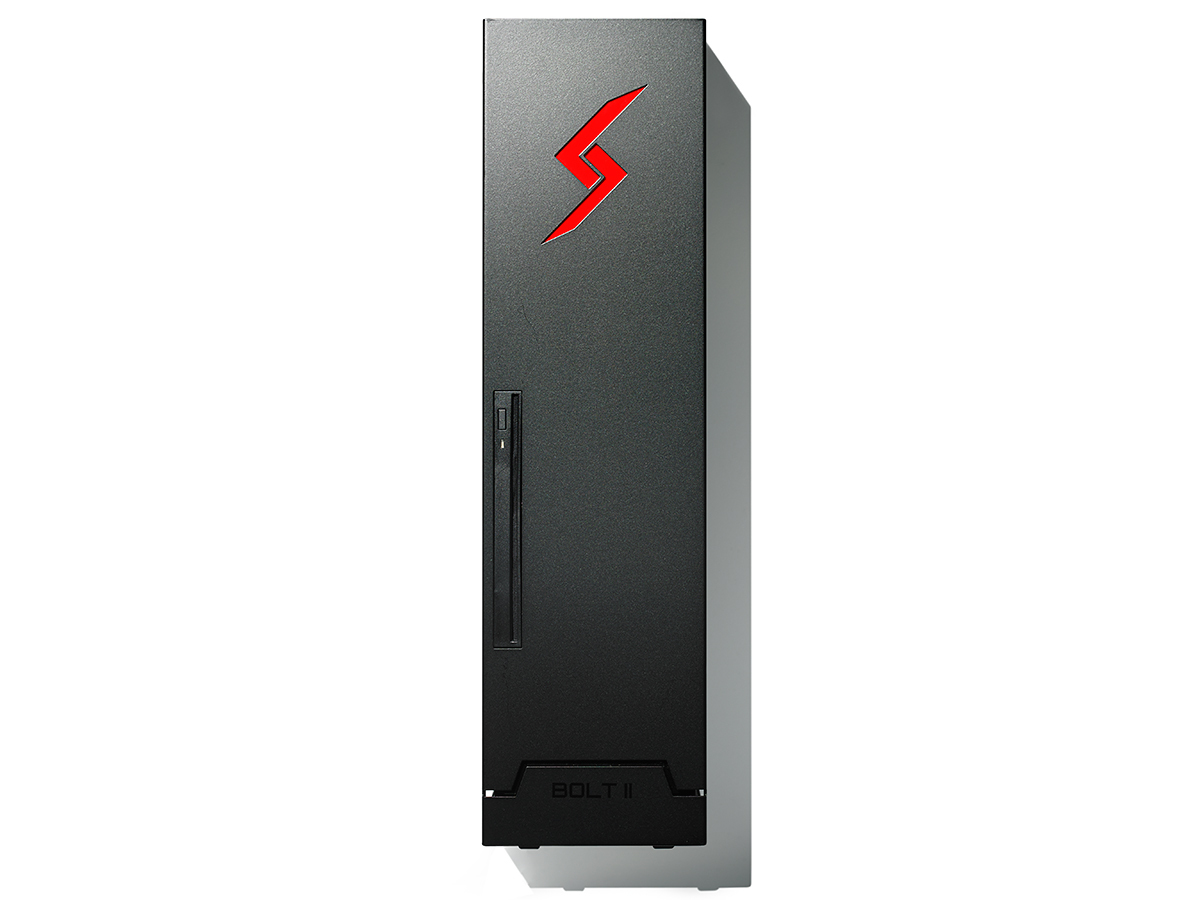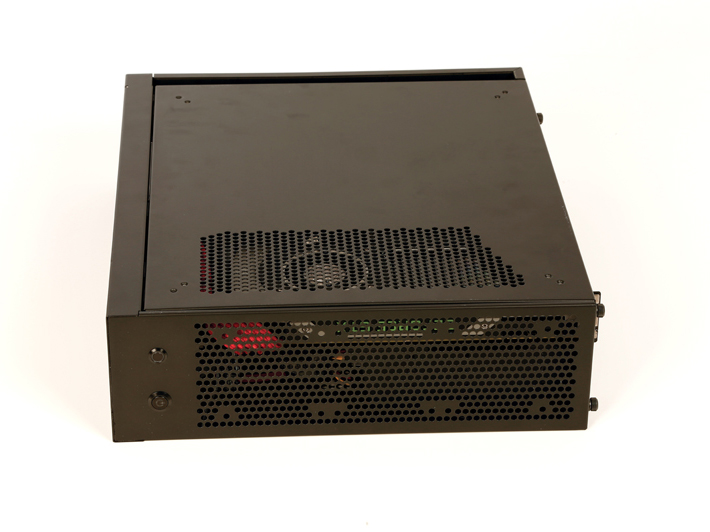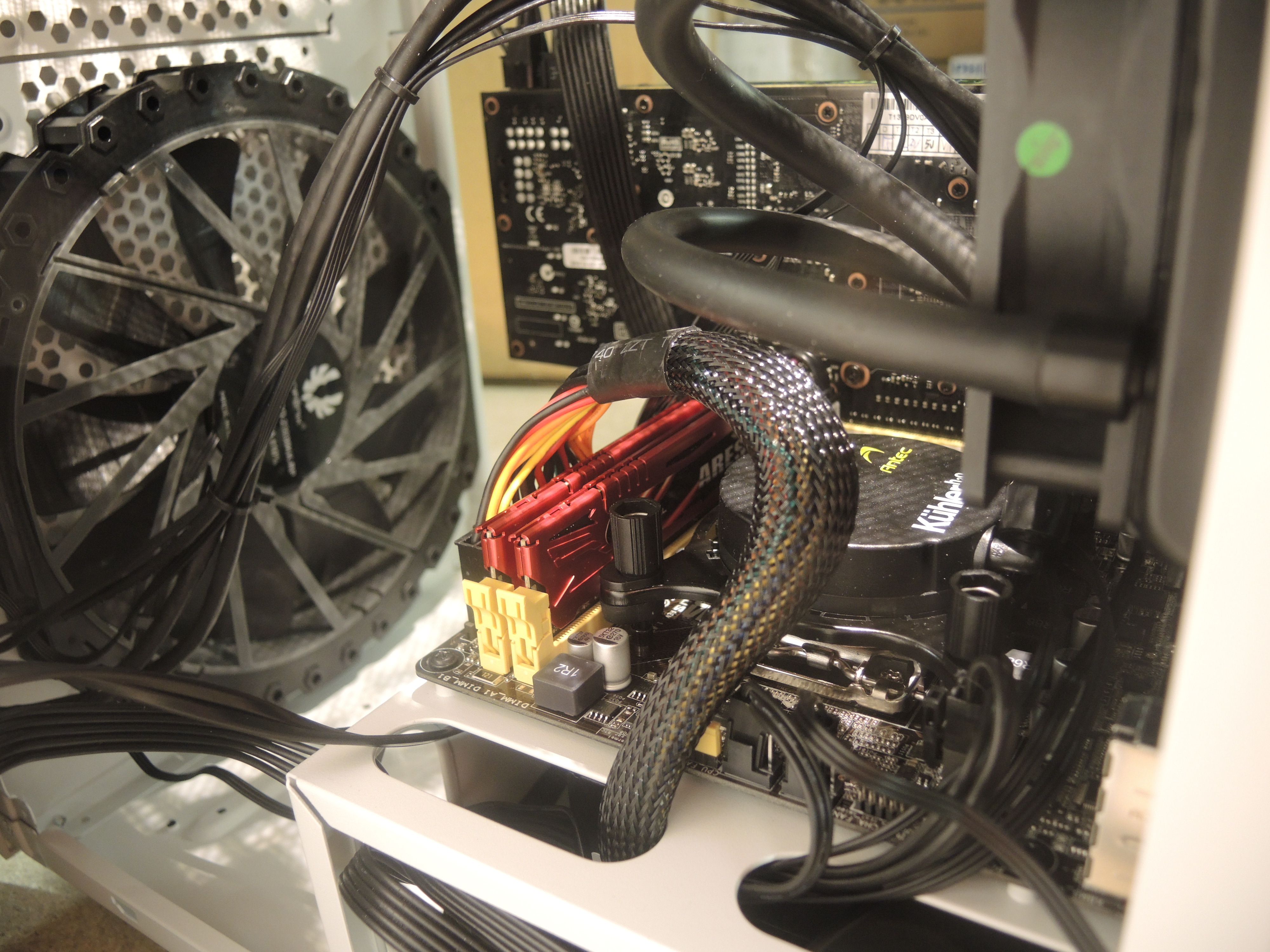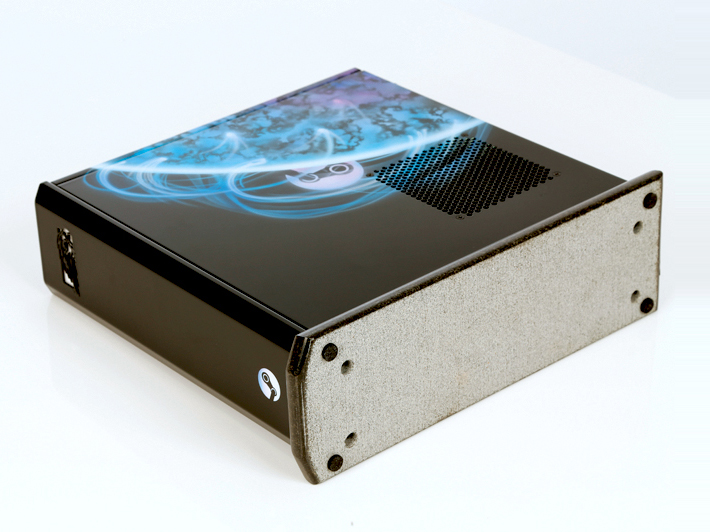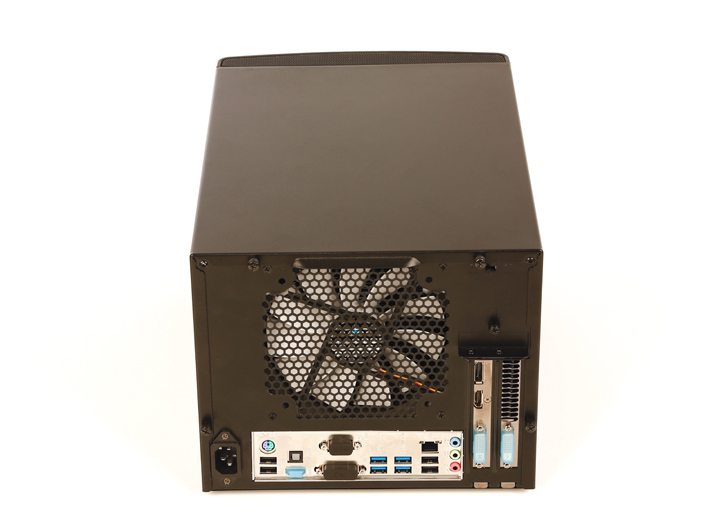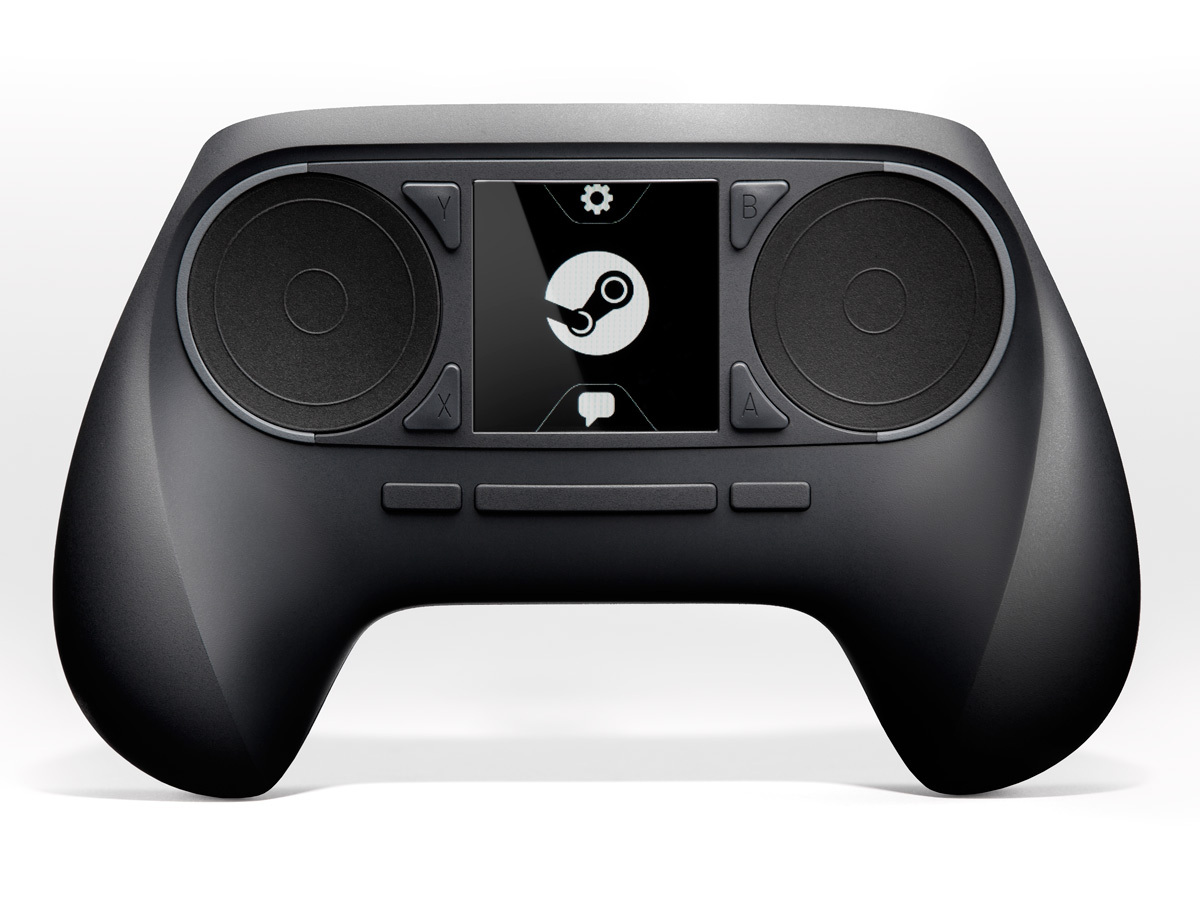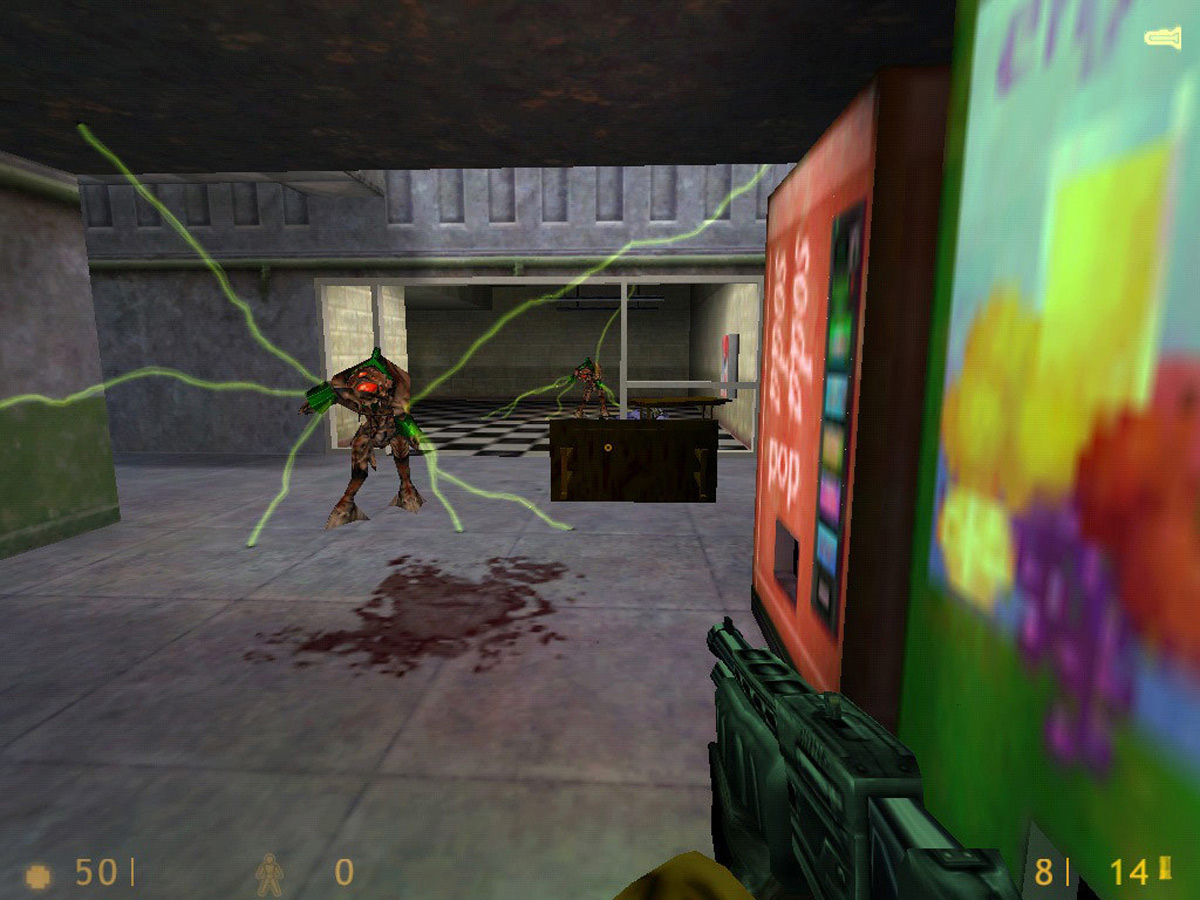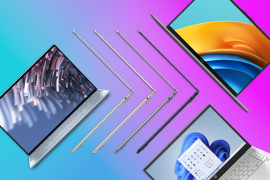EXCLUSIVE: 12 Steam Machines detailed, fondled and photographed from every angle
Stuff spent some exclusive hands-on time with (nearly) all of the Steam Machines - and we thought you might like to take a look too
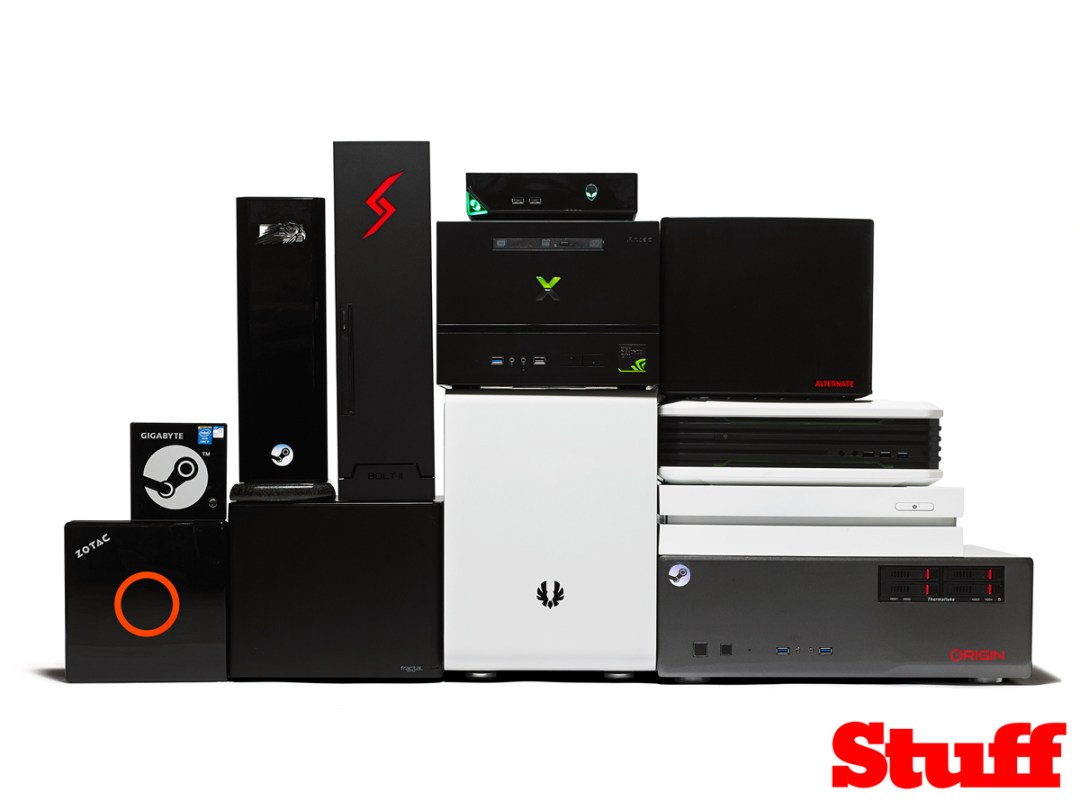
Of all the boxes that have turned up in the Stuff stockroom, the one that piqued the most interest was the big flight case from Valve.
At six feet long and deep enough to hold two bodies (probably – we didn’t actually try), it looked like it had trundled straight out of the giant facility at the end of Raiders of the Lost Ark. It even had an Aperture Science logo on one side.
The contents were no less exciting – 12 of the 13 Steam Machines that will be released later this year, in a move that Valve hopes will take the scorching speed and grandiose graphics of PC gaming off your desktop monitor and on to your TV.
A STEAMY WHATNOW?
OK, in case you’re not familiar with Steam: it’s a platform where you can buy and play PC games online. Think of it as being like Xbox Live, only bigger – Steam has more than 65 million active users.
It’s run by the world’s most enigmatic games company, Valve, which has also made some of the most influential and popular titles in gaming history, among them the Half-Life and Portal series.
A Steam Machine is a gaming PC built to run Steam on your TV rather than your desktop, so most of them are quiet and small, like consoles. And, also like consoles, they all work with a gamepad – a futuristic new gamepad that Valve has spent the last few years designing.
LET’S HAVE A GO
In case you hadn’t guessed, we’re slightly excited about what Steam Machines will do for gaming. We’ve been to Valve’s offices for a poke around, we’ve fiddled with prototypes, we’ve interviewed the people making this truly next-gen gaming project happen, and we’ve shot every one of these Steam Machines in 360°, so you can zoom, twirl and twiddle them while taking a sniff under the hood.
You smell that? That’s the smell of the future. Or maybe it’s coolant.
READ MORE: Valve Steam Machines preview – everything you need to know
Origin PC Chronos
Best for raw, unadulterated, screen-melting power
Click here for the interactive 360 version
First impressions
The impossible-to-miss glowing logos on Origin’s big black box make no effort to hide what OS it’s running. The Chronos is just about small enough to slide into the average lounge TV rack, though this is likely to end in divorce. Or at least a night on the couch (which, incidentally, you can carry on gaming from).
If you’d prefer your Steam Machine to look less like a PC and more like a console, then it’s probably not the best choice for you. Unless of course, you want pure, uninhibited power. Speaking of which…
Under the hood
The Chronos has not one, but two Nvidia GTX Titans in charge of pushing pixels to your eyeballs. That’s two of the world’s most powerful consumer graphics cards, working together to tickle the part of your brain responsible for embracing ultra-sharp graphics, zero lag and smooth gameplay.
In other words, it’ll smash through any games you care to throw at it with ease, even at 4K resolutions.
Dual-boot upgrade options will let you swap between Valve’s Linux-based SteamOS, Windows 7 or Windows 8, and you can have up to 14TB of storage. Yes. terabytes.
It’s also got easy-access hot-swappable SSDs for shifting around extra storage and there’s enough gaming muscle packed inside it to power a small country. Which is why a fully-specced model will set you back the price of a small car.
You prefer cycling anyway, don’t you?
READ MORE: Hands-on review: SteamOS, Valve’s game-changing operating system
Tech specs
Price: unknown
CPU: Intel Core i7 4770K (3.9-4.6GHz)
GPU: 2 x 6GB Nvidia GeForce GTX Titan
RAM: unknown
Storage: up to 14TB
A closer look
The Chronos has a closed loop liquid cooling system as opposed to a more common fan-cooled CPU heatsink to keep its processor running at reasonable temperatures while ensuring that noise is minimal.
Being a closed loop system, it should require zero maintenance too. Custom loops, on the other hand, have problems with air getting into the system and carry the risk of leaking. They take longer to set up, but can perform better and you can customise how they look.
Given that quite a few of the Steam Machines have liquid cooling, it looks like Valve has placed a particular emphasis on quieter systems for living room use.
The Chronos also has a ludicrously quick front-loading SSD swapping system which lets you slide out storage drives with a simple click.
Next Spa
Best for stealth gamers
Click here for the interactive 360 version
First impressions
The green X on the front of this Steam Machine is a subtle nod to the gaming DNA of what is essentially a rather boring black cube with a few ports on the front. You could easily mistake it for a media PC, which is no bad thing if you’re looking to sprinkle a dash of PC gaming into your living room.
Under the hood
Not the most exciting design then, but you’ll be too busy fragging away to care. It might not arrive rocking two GTX Titans, but even its single GTX 760 GPU is substantially more powerful than the PS4’s pixel-pushing muscles.
It’s also easily capable of gaming at 1080p. Hear that? That’s the Xbox One quietly weeping in a corner. Another point for the PC master race.
READ MORE: Stuff’s 200 Greatest Games of All Time
Tech specs
Price: unknown
CPU: Intel Core i5
GPU: Nvidia GTX 760
RAM: 8GB
Storage: 1TB
Digital Storm Bolt II
Best for liquid-cooled gaming
Click here for the interactive 360 version
First impressions
In time-honoured PC gaming fashion, the Bolt II’s black chassis with red highlights has a window showing off its delicious insides. If you like that sort of thing then you’re sorted.
Chuck a few LEDs in there too and you’ll have a bona fide rave machine. If not then, well, you’ll find it rather garish.
Under the hood
The Bolt II might ‘only’ start at US$1200, but don’t let that fool you. It can be specced up to the hilt if you’ve got more cash to spend, and it’s likely to run whisper quiet too, thanks to its liquid cooling system – which is ready to go straight out of the box.
If you’ve ever set up your own liquid cooling loop before then you’ll know what a pain it can be. Less time crying over spilt fluid and frazzled motherboards – more time blasting your enemies to smithereens in glorious 2K resolutions.
Tech specs
Price: from US$1899
CPU: Intel Core i7 4770K
GPU: Nvidia GeForce GTX 780Ti
RAM: 16GB
Storage: 1TB HDD + 120GB SSD
Webhallen
Best for Stormtroopers
Click here for the interactive 360 version
First impressions
Pretty, isn’t she? The simple curves and black and white colour scheme of the Webhallen earns it top marks in our design books and it’s our favourite Steam Machine in terms of build. It’s got a lovely matte finish too, but it is rather big and heavy.
It’ll stick out in your living room, and won’t match any of the black boxes that are already under your telly, but with a face like that, we’ll let that slide. Just pretend it’s a Stormtrooper’s sub.
Under the hood
The GTX 780 will of course laugh at both next gen consoles as it serves up crisp visuals at 2K (that’s twice 1080p) resolutions, while its solid state/hard disk hybrid drive offers a mix between capacious storage and fast performance.
With the OS on the solid state portion of the SSHD, boot times are measured in seconds, while media and games can be stored on the larger, spinny-platter hard disk portion.
Tech specs
Price: US$1500
CPU: Intel Core i7 4771
GPU: Nvidia GTX 780
RAM: 16GB
Storage: 1TB SSHD
A closer look
The Webhallen’s CPU is cooled by an Antec closed-loop liquid cooling system which should help tame its i7 processor, while running quieter than a more traditional fan-cooled heatsink.
READ MORE: Valve headquarters is the coolest office in the world
Alienware X31
Best for UFO enthusiasts
Click here for the interactive 360 version
First impressions
While we quite like the glowing angular cutaway and equally bright alien head (it’s thankfully not as brash as its laptop and PC counterparts), the insides of the Alienware X31 Steam Machine leave a lot to be desired.
Because they’re completely empty.
We can at least tell you that this is one of the smaller Steam Machines on offer and won’t offend anyone too much when it’s nestled in your TV cabinet.
Under the hood
There’s a battery and a few LEDs and, well, that’s about it.
We are assured that the Alienware will land with an unspecified Intel CPU and Nvidia graphics card, but that’s all we know for the time being. No price, no hardware specs, no nothing. Perhaps it dropped out of Area 51?
READ MORE: The Alienware 17 is the gaming laptop you’ve been waiting for
Tech specs
Price: unknown
CPU: Intel CPU
GPU: Nvidia GPU
RAM: unknown
Storage: unknown
Gigabyte Brix Pro
Best for gamers living in a broom cupboard
Click here for the interactive 360 version
First impressions
Brick by name, brick by nature. This compact black cube is the handsomest of all the smaller Steam Machines and it feels nice and solid to hold. No wonder, given how much technology is packed into such a tiny space.
Under the hood
While it barely looks like it could handle MS-DOS, you’ll be pleasantly surprised by its innards.
The Brix Pro crams in an Intel i7 processor, but doesn’t have a dedicated graphics card. Instead, it relies on Intel’s integrated Iris Pro 5200 graphics chipset.
It won’t blow spec lovers away, but it’s the most powerful integrated graphics chipset available to date. You’ll be able to play demanding games such as Battlefield 3 fluidly at medium/high settings at 720p. Not one for the hardcore, then, but not bad living room fodder.
Tech specs
Price: unknown
CPU: Intel Core i7-4770R
GPU: Intel Iris Pro 5200 integrated GPU
RAM: 8GB
Storage: 1TB HDD
iBuyPower SBX
Best for PC power with console aesthetics
Click here for the interactive 360 version
First impressions
The SBX’s sleek slab won us over back in January with its layered design and glowing accent – hence why it won a Hot Stuff Award at CES.
Available in black or white, it looks more like a next-gen console than a pure-bred PC, and its competitive starting price will have Sony and Microsoft keeping a close eye on it when it launches.
Under the hood
One of the iBuyPower’s configurations packs in a 3.90GHz AMD processor which has more power per core than that of its console rivals, given its more recent architecture.
Tech specs
Price: from US$500
CPU: Unnamed Intel or AMD
GPU: 2GB AMD R9 270
RAM: 8GB
Storage: 500GB+
Zotac
Best for people who want to forget they even have a gaming PC
Click here for the interactive 360 version
First impressions
The Zotac falls into the miniature Steam Machine camp and resembles a glossy black router, especially when it’s wielding its twin Wi-Fi antennae. That’s either very good, or very bad, depending on how big and brash you like your tech.
Under the hood
Apart from the fact that it’s minuscule, we know very little about the Zotac. A mystery Nvidia GTX GPU and Intel processor are all we have to go on, but at US$500, it’s as unlikely to burn a new hole in the ozone layer as it is to break the bank.
Let’s hope it matches the similarly priced iBuyPower for specs.
Tech specs
Price: from US$500
CPU: unnamed Intel
GPU: unnamed Nvidia GTX
RAM: 8GB
Storage: unknown
Material.net
Best for the grey man
Click here for the interactive 360 version
First impressions
Sharing the same case as the Alternate (page 13), there’s no mistaking the Material.net for anything other than a PC.
It’s probably too large for most lounges, but that extra space means it’s got a nice big (and therefore, quiet) fan to help keep it cool.
Under the hood
With an Intel i5 CPU, Nvidia GTX 760 OC graphics and 8GB of RAM to boot, the next-gen consoles will feel very intimidated in its presense. And rightly so, given the US$1100 asking price.
READ MORE: Haptics, trackballs and Cheeto dust: How Valve built the game controller of the future
Tech specs
Price: US$1100
CPU: Intel Core i5 4440K
GPU: Nvidia GeForce GTX 760 OC
RAM: 8GB
Storage: 8GB + 1TB SSHD
CyberPowerPC
Best for tricking console players into PC gaming
Click here for the interactive 360 version
First impressions
While the Cyberpower is fairly big, we’re huge fans of its console-like appearance and would happily have it live in our lounge.
But only in the black version with red lights. The white and green light combo is a little too bright for our eyes.
Under the hood
The Cyberpower will arrive in two main flavours: the more powerful I model with an Intel i5 processor and GTX 760 graphics, or an AMD processor and GPU-toting A model which is US$200 cheaper.
Not the fastest Steam Machines compared to some, but they’re competitively priced against the PS4 and Xbox and promise to better their performance to boot.
Tech specs
I Model
Price: US$700
CPU: Intel Core i5 i3-4330 3.5GHz
GPU: NVIDIA GeForce GTX 760
RAM: 8GB
Storage: 500GB HDD
A Model
Price: US$500
CPU: AMD A6-6400K 3.9GHz
GPU: 2GB AMD Radeon R9 270
RAM: 8GB
Storage: 500GB HDD
Falcon Northwest Tiki
Best for 1337 gamerz
Click here for the interactive 360 version
First Impressions
The Falcon Northwest is built like a tank and appears to have a slab of marble for a base. It’s very heavy and feels like an expensive, premium product.
Which is why it’s such a shame to see it slathered in a garish ‘Xxl33t-h3edsh0txX’ airbrushed paint job.
Luckily the Tiki is an existing high-end PC that you can snap up from Falcon minus the dodgy makeup, so hopefully you’ll be able to snap one up in less garish colours come launch day.
Under the hood
The Falcon is up there with the most expensive PCs available, with a top-specced model costing a massive US$6000. CPU details are light, but we expect nothing less than the latest top-end Intel i7 processors, along with multiple GTX Titans.
Up to 16GB of RAM and 6TB of storage help justify the eye-watering sticker price.
Well worth dipping into your kid’s university fund for, we think you’ll agree.
READ MORE: Hands-on with Valve’s Steam controller
Tech specs
Price: US$1800 – US$6000
CPU: customisable
GPU: Nvidia GTC Titan
RAM: 8GB – 15GB
Storage: up to 6TB
Alternate
Best for gaming in plain sight (if you’ve got the space for it)
Click here for the interactive 360 version
First impressions
Alternate’s offering shares the exact same case as Material.net’s gaming machine. That mean’s it’s big, plain and, well, not massively exciting.
At least that means it won’t be an attention-grabbing living room disco cube, but given its size, you might be put off shoving it under the TV anyway.
Under the hood
It might not scream as loud as the Falcon Northwest Tiki, but the Alternative still has console-beating power, thanks to a GTX 760 graphics card, i5 processor and a maximum of 16GB of RAM.
Tech specs
Price: US$1350
CPU: Intel Core i5 4570
GPU: Nvidia GTX 760
RAM: 16GB
Storage: 1TB SSHD
A closer look
Alternate has gone for a traditional fan-cooled CPU heatsink, and it’s absolutely huge.
It’s also gone for a triple fan setup on the side of the case, to push warm air out, cooling the internal temperature.
Opinion – is this the start of a gaming revolution?
No – Tom Wiggins, deputy editor, Stuff magazine
When Valve’s Steam Machines were first announced I was every bit as excited as the next recovering Counter-Strike addict. It might not have been Half-Life 3 but a Steam Machine could be the vessel in which the world’s most long-awaited game would be delivered – and straight to my telly. So why am I just looking at a load of Linux-based gaming PCs? Is this really the brave new future, or just the same thing repackaged?
To compete with the consoles you need one thing: simplicity. If I want to play Titanfall, all the decisions are made for me: I buy an Xbox and a copy of the game, and the world is my oyster. An oyster that I’ll gleefully lay waste to inside a massive robot. To play Dota 2 I need one of 13 Steam Machines, or the PC I’ve already got. Or I can build one myself and maybe install SteamOS on it. Isn’t this pretty much how it worked before?
Steam OS might be appealing to PC gamers, but you’re preaching to the converted. Where the whole thing does show potential is in the controller. All of gaming’s biggest recent advances have come from how you control them, from the Wii Remote to Xbox’s ever-improving Kinect, and Valve’s amalgamation of gamepad and touchpad has the potential to shake things up, making much better use of its touchy-feely zones than the PS4 currently does.
But without a sufficient number of hands on the controllers the whole thing could end up next to the Dreamcast or Gamecube: fondly remembered but ultimately a bit of a failure.
For a few years, it seemed there was no option but to buy Apple if you wanted a proper smartphone. Yes, this meant you could only buy Apple-sanctioned apps, and yes, it meant having a smartphone was rather pricey, but what choice did you have? Then Google came along, with a new way of doing business. It didn’t make the phones itself, it just made an open operating system that it gave away for free, along with plenty of support and some superb software. Android phones now outsell iPhones by almost seven to one.
While the Xbox One and PS4 are both hugely exciting machines, they are, like the iPhone, closed shops. No-one gets to make a different kind of Xbox but Microsoft, but anyone can build a Steam Machine. Sony may trumpet about its love of indie developers, but you can’t just make a mod and start distributing it to other PS4 owners. Steam is very much the Android in this game – an open operating system, hardware anyone can make, and a store that lets developers self-publish more cheaply. And while Android took a few years to take off, once people realised it was easy and simple and non-nerdy (and cheap), it took off like a nervous frog on a caffeinated firework.
With its clever new controller, its wide selection of consoles and its already class-leading platform for selling and playing games, Steam is well placed to do the same. It won’t wipe out the established consoles – iPhones are still fairly popular, last time I looked – but it will provide a very tempting alternative.
READ MORE: Microsoft Xbox One vs Sony PlayStation 4: in depth



